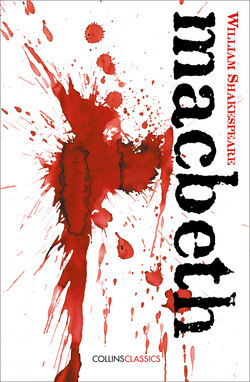Читать книгу Macbeth - William Shakespeare - Страница 9
The Language of the Play
ОглавлениеIt has already been said that many Shakespearean words and phrases require explanation to twentieth century readers and play-goers. It is not at all surprising that a play written nearly four hundred years ago should present problems of understanding. Living languages are always changing and developing. Another difficulty is that playwrights have always interested and amused audiences by making topical references. An Elizabethan audience would have instantly recognized a mention of the Spanish Armada, or something relating to the contemporary troubles in Ireland, which people in a twentieth century theatre might not even notice. Although it must be said that much of what is most important ‘gets across’ quite readily, we can all gain more from a Shakespeare play by deepening our understanding of the text. But, however conscientiously readers follow any textual notes, they will only be adding to their comprehension of words and phrases. There is a broader strategy at work in Shakespeare’s use of language that notes can only hint at. For example, the linguistic style often varies to suit the mood of the moment or the personality of the speaker. Macbeth begins with a heavy, menacing rhythm, a kind of incantation by the witches:
Fair is foul, and foul is fair:
Hover through the fog and filthy air
(Act 1, Scene i, lines 12–13)
which breaks off suddenly and is replaced by a passage full of long, involved sentences of description and explanation. The wounded Sergeant tries to convey in detail to his king the reality of a terrible battle, and the almost superhuman impression that Macbeth’s quality of fighting has made upon him. The Sergeant’s account falters, he breaks off, exhausted, and the scene ends with a mixture of long, rolling lines and short, exclamatory ones. The news seems good: The victory fell on us (Act 1, Scene iii, line 59) says Ross, but the news of Cawdor’s treachery is dismaying and the rhythms hint at confusion, not resolution. Ambiguous notes have been struck which condition our responses to what follows. As the play goes on, more doubts arise, and motives become obscure: these abstractions are reflected in the language. Macbeth and Lady Macbeth, when talking to themselves or to each other, are generally clear and direct in style:
Lady Macbeth:
Yet do I fear thy nature;
It is too full o’ th’ milk of human kindness
To catch the nearest way
(Act 1, Scene v, lines 15–17)
and
Macbeth:
He’s here in double trust:’
First, as I am his kinsman and his subject…
(Act 1, Scene vii, lines 12–13
Both of them, however, adopt a flamboyant, almost unctuous manner when they want to conceal their true feelings and intentions.
All our service
In every point twice done, and then done double,
Were poor and single business to contend
Against those honours deep and broad wherewith
Your Majesty loads our house;
(Act 1, Scene vi, lines 14–18)
says Lady Macbeth to Duncan, with murder in her mind, when welcoming him to the castle at Inverness. Her husband outdoes her in fulsome language, just after he has killed Duncan:
Here lay Duncan,
His silver skin lac’d with his golden blood;
And his gash’d stabs look’d like a breach in nature
For ruin’s wasteful entrance
(Act II, Scene iii, lines 111–14)
He goes on in such extravagant terms that (some critics suggest) Lady Macbeth has to pretend to faint in order to shut him up. Duncan and Banquo are almost the only characters whose true feelings are regularly reflected in their words. Even among some of those who represent the forces of goodness and truth, language is sometimes used to hide feelings rather than to express them. In the mysterious Act IV, Scene iii, Malcolm, who is to prove the saviour of Scotland, pours out hundreds of words of self-description, most of which he contradicts a little later on (I…unspeak mine own detraction).
By Act V, clarity and directness have returned. Lady Macbeth, in her madness, speaks the simple words of truth:
Yet who would have thought the old man to have had
so much blood in him?
(Act V, Scene i, lines 35–7)
Macbeth himself, face to face with ultimate reality, no longer has any need for words as disguises:
…that which should accompany old age,
As honour, lover obedience, troops of friends,
I must not look to have.
(Act V, Scene in, lines 24–6)
So, although it is apparent that language in this play frequently reflects the moods and characters of the speakers, it often does so in subtle ways. In addition, deeper and wider impressions are being evoked, so that the language of the play throughout reflects its underlying ideas: the onset of evil fostered in human souls, doubt and insecurity (represented in ambiguous words) and finally the triumph of truth and justice. Some further suggestions are made in the Theme Index (page 214) about the use of particular words by which these wide-ranging impressions are conveyed.
